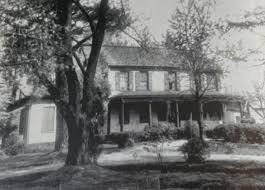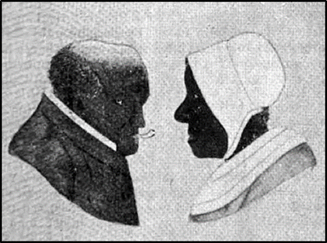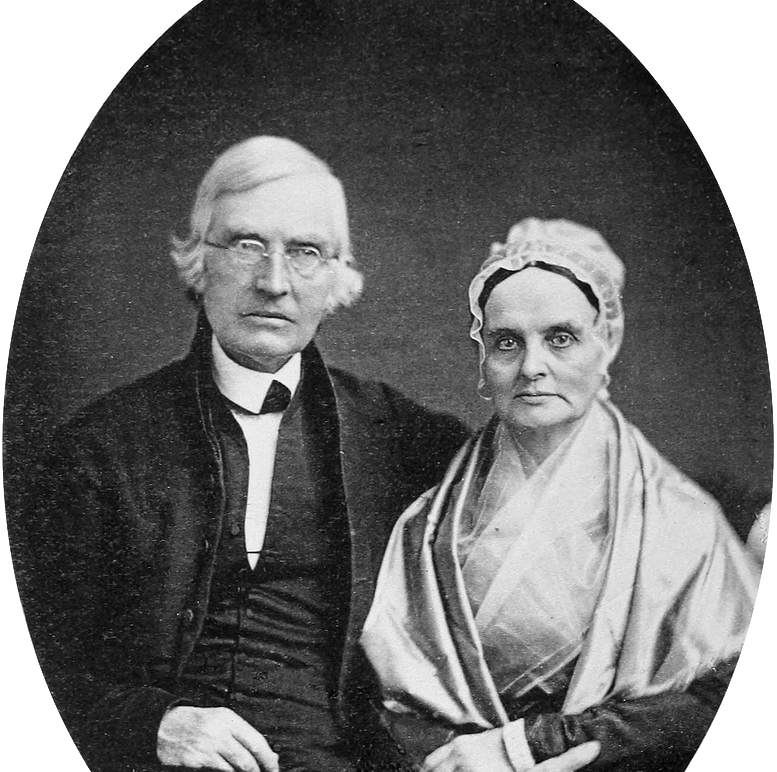Mott House
4 Pryer Manor Road
This is a private residence -- please be respectful.
History of The Home

This historic home was once the residence of James Mott–a prominent Quaker and enslaver despite being known for his abolitionist beliefs–along with his four children Richard, Anne, Samuel, and Robert. Sadly, James’ wife, Mary Underhill, died soon after the family had moved into the mill.
During their time in Mamaroneck, the Motts operated a flourishing flour mill, aptly named The Mott Mill, which prospered due to the high demand for flour in Europe caused by disruptions from the French Revolution. The home was meant to serve as a peaceful residence to raise the children.
A Complicated History...

James Mott, a descendant of Ann Parson (wife of town founder John Richbell), came from a family intertwined with the history of slavery in Mamaroneck. Despite their Quaker traditions, the Motts initially owned two married enslaved workers: Billy and Jinny. The 1810 census also alludes to James Mott having three enslaved workers, separate from Billy and Jinny. In 1811, James Mott purchased an enslaved man named Andrew (age 26) who he intended to free when Andrew turned 28.
Jinny and Billy
Jinny was born free in Africa, the daughter of a king. She described her early life as full of joy: “no frost, no ice, no snow – without care and without clothes.” Her life changed forever in 1744 when she was kidnapped and sold in New York City’s slave market. Samuel Underhill–James Mott’s father-in-law–purchased her. Jinny married Billy when she was around 20 years old.
Billy, or, “Banjo Billy”, was born in 1728 in Long Island to enslaved parents and sold to Samuel Underhill's neighbor. Underhill traded to acquire Billy when he later moved to a farm in Mamaroneck to prevent separating the couple.
James Mott eventually bought the farm, acquiring both Jinny and Billy on loan from the Mott's father-in-law, Samuel Underhill. Despite gaining their freedom through the New York Society of Friends' (Quakers) manumission decree for their members, Jinny and Billy chose to stay with the Mott family, raising a large family at the mill. In the years following Jinny and Billy's freedom, the Motts continued to operate the mill through the use of enslaved labor.
A Familiar Name

In early 1814, Lucretia Mott and her husband, James Mott (the second James in the family—his grandfather being the original James Mott), moved to Mamaroneck to assist Richard Mott, James Mott’s eldest son, in managing his cotton mill along the Sheldrake River near what is now Hickory Grove Drive. Richard, a well-known Quaker preacher like his father, had taken advantage of growing trade opportunities by building the mill to spin cotton into thread. His product, Mott's Spool Cotton, became widely known in the 19th century.
While living in Mamaroneck, Lucretia gave birth to their first son, Thomas, on July 23. Despite Richard’s efforts, the business faced financial troubles, and the Motts left Mamaroneck later that year to return to Philadelphia—a turning point that led Lucretia to her influential roles in the abolitionist and women’s rights movements, where she organized the Seneca Falls convention, earned the title as “the mother of the suffragist movement”, and assisted with the Underground Railroad.
